The Helping to End Addiction Long-term® Initiative, or NIH HEAL Initiative®, aims to develop solutions to ending the current opioid crisis through funding hundreds of projects nationwide. These research studies include a broad range of approaches to understanding, managing, and treating pain as well as to preventing and treating opioid addiction.
Equally diverse as the research approaches pursued in the NIH HEAL Initiative are the investigators who conduct this research. They range from leaders in their fields with decades of experience to young scientists at the beginning of their careers. Here we introduce eight of these early career investigators who recently presented their research activities to a broad audience at the May 2021 NIH HEAL Initiative Investigator Meeting. These brief profiles showcase this promising new talent.
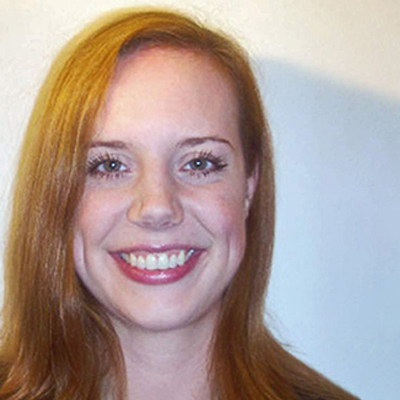
Laura Brandt, Ph.D. (Postdoctoral Fellow, Columbia University and the New York State Psychiatric Institute, New York City)
For many issues related to opioid use disorder (and substance use disorders in general), there is a wealth of data waiting to be interpreted. In part, this is due to the complexity of these disorders, but new methods to analyze existing data could also contribute to progress. Brandt’s research is identifying and validating clinically relevant outcomes that can be used as endpoints in clinical trials testing substance use disorder treatments.
What she’s studying: Brandt is developing computational approaches to identify clinical trial endpoints that can reliably predict patients’ long-term outcomes, which could help quantify success for substance use disorders.
Why HEAL? For Brandt, the NIH HEAL Initiative is addressing an important public health issue at a fast pace. Targeting research to the areas of greatest need increases the likelihood of novel solutions that benefit all affected groups.
Outside the lab: To unwind from the stress of the research environment Brandt turns to nature, and particularly hiking. a highlight was a 5-month hike along the Pacific Crest Trail in 2018.
Watch Brandt’s talk (5 minutes)
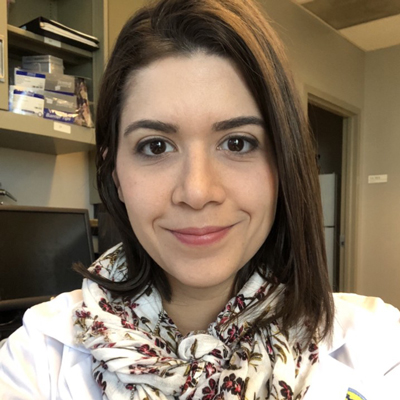
Carla Freire, M.D. (Postdoctoral Fellow, Johns Hopkins University, Baltimore, Maryland)
Freire is an otolaryngologist who specializes in sleep medicine. Among her past patients who required surgery, those who were obese or suffered from severe sleep apnea had an increased risk of complications after pain treatment with opioids. This prompted her to investigate new treatment options for people who have chronic pain and opioid use disorder.
What she’s studying: Freire studies non-opioid drugs that can improve breathing after an opioid overdose. Respiratory depression is the main cause of death associated with opioids and is common in people with obesity and sleep-disordered breathing. She and her colleagues found that a fat tissue-derived hormone called leptin can reverse opioid-induced respiratory depression and thus improve patients’ survival after an overdose.
Why HEAL? Freire says that the NIH HEAL Initiative provides both financial and technical support to improve research in an important area of research in need of more attention. It has also helped create a community of scientists with a common goal of ending the opioid epidemic and finding safer approaches to treating pain.
Outside the lab: Freire loves travelling and meeting people from around the world and learning about their diverse histories and cultures.
Watch Freire’s talk (5 minutes)
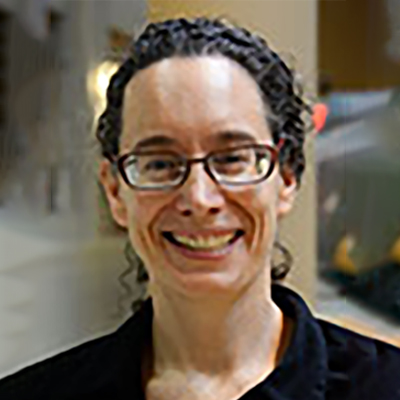
Ellen Goldstein, Ph.D. (Assistant Scientist, University of Wisconsin, Madison)
Goldstein is a behavioral and social scientist interested in promoting women’s health research and on addressing the impact of adverse childhood experiences on mental and physical health. She is looking for behavioral interventions to reduce health risk behaviors in frequently underserved populations, such as low-income patients, racial and ethnic minorities, and uninsured or underinsured patients.
What she’s studying: Goldstein and her colleagues have recently explored the best approaches for recruiting pregnant women with substance use disorders (and those who have just given birth) into long-term research studies – as well as how to keep them involved in such studies. Her team has identified several key factors including building relationships that foster trust and confidence between researchers and participants; understanding cultural norms, values, and language; and establishing a peer support network.
Why HEAL? Goldstein credits the NIH HEAL Initiative with enabling her and her colleagues to use a comprehensive array of strategies to investigate the best approaches to recruiting pregnant women with substance use disorders for research studies. Among these strategies are focus groups and in-depth interviews to listen to the voices of women with lived experience of substance use during pregnancy.
Outside the lab: Like many of her colleagues, Goldstein re-energizes by enjoying and exploring the beauty and expanse of the great outdoors.
Watch Goldstein’s talk (6 minutes)
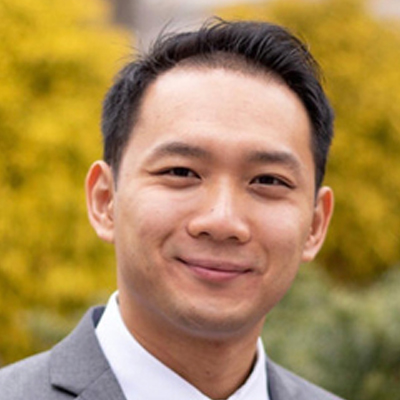
Augustine Kang, Ph.D. (Investigator, Brown University School of Public Health, Providence, Rhode Island)
Kang’s research focuses on preventive medicine and health disparities, and he has worked with both justice-involved individuals and people with substance use disorders. He believes that health disparities are a form of social injustice and that everyone should have equal access to life-saving medications for opioid use disorder.
What he’s studying: Kang’s HEAL research is part of the Justice Community Opioid Innovation Network (JCOIN) study. His team’s analyses of people with opioid use disorder incarcerated in the Rhode Island Department of Corrections determined that before expanding access to medications for opioid disorder in this setting, no Black individuals in this population had received it.
Why HEAL? Kang particularly appreciates access to the vast networks of resources, mentors, and colleagues that the NIH HEAL Initiative provides.
Outside the lab: Outside of his research, Kang enjoys spending time with his newly adopted dog and watching him learn new tricks.
Watch Kang’s talk (5 minutes)
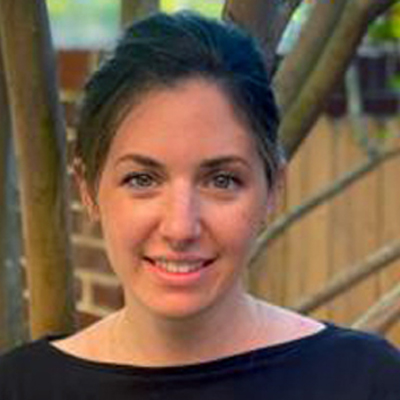
Mary Kleinman, M.P.H. (Graduate Student, University of Maryland, College Park)
While working in the field of infectious disease epidemiology, Kleinman was struck by the pervasive presence of substance use in people with tuberculosis and hepatitis C. Motivated to understand factors influencing treatment outcomes in these populations, she is pursuing a Ph.D. in clinical psychology.
What she’s studying: Kleinman is currently evaluating peer-delivered behavioral interventions to improve treatment retention for people with opioid use disorder. Her research is studying how pervasive stigma associated with both substance use and methadone treatment affects people’s experience with, and adherence to, methadone treatment.
Why HEAL? Kleinman appreciates the NIH HEAL Initiative not only for its contribution to her own training, but also for bringing together diverse researchers who study substance use disorders and their treatment from many different angles, and for allowing people affected by these disorders to share their lived experiences with the HEAL community.
Outside the lab: Kleinman unwinds and rejuvenates on backpacking adventures with her husband and dog. She also derives great satisfaction by working at the community-based opioid treatment program where her HEAL-funded study takes place.
Watch Kleinman’s talk (6 minutes)
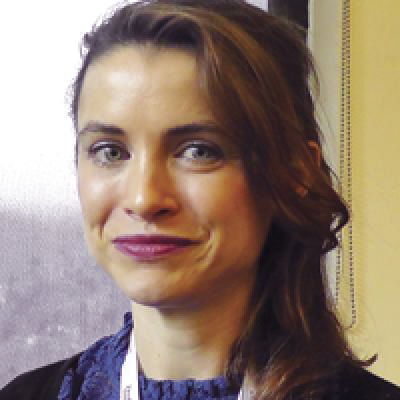
Bridget Mueller, M.D., Ph.D. (Assistant Professor, Icahn School of Medicine at Mount Sinai Hospital, New York City)
Mueller’s research aims to understand how stressful life experiences affect a body’s biological responses and influence disease risk and resilience – particularly in underserved populations.
What she’s studying: Mueller is studying how disturbances of the autonomic nervous system (which controls involuntary body functions), stress, and inflammation can cause pain to become chronic. She is exploring disparities in access to care during the COVID-19 pandemic in people with pain. She has determined that sociodemographic factors such as race/ethnicity, sex, and insurance affect patient preferences for virtual or in-person care. For example, she found that Black and Hispanic patients were more likely to have telephone visits compared to Whites and Asians; and women were more likely than men to connect virtually.
Why HEAL? For Mueller, one of the main benefits of the NIH HEAL Initiative, in addition to the support she receives for her own research, is its ability to expand participating researchers’ knowledge and experience beyond their own fields of research.
Outside the lab: Outside of her research and clinical work, Mueller enjoys the New York City culture – especially live music, when available. She also plays the cello.
Watch Mueller’s talk (6 minutes)
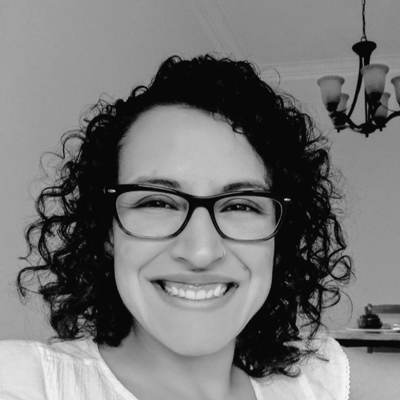
Juliana Navia-Pelaez, Ph.D. (Postdoctoral Fellow, University of California, San Diego, School of Medicine)
Navia-Pelaez was drawn to research through her own experience with migraines since her teen years, and she is intent on understanding (and treating) migraine and other types of chronic pain.
What she’s studying: Navia-Pelaez’s past research suggested that lipid metabolism may alter pain experiences, and she and her team are studying how cholesterol might affect development and treatment of a type of chronic pain called peripheral neuropathy that often occurs in cancer patients undergoing chemotherapy. Navia-Pelaez and her colleagues are learning that changes in cholesterol metabolism in certain immune cells in the spinal cord (microglia) can induce or prevent chronic pain in an animal model.
Why HEAL? Navia-Pelaez sees hope as the main impact of the NIH HEAL Initiative on individuals and families. By validating the experiences of people with pain, like herself, HEAL is accelerating the development of new treatments for pain that are effective and safe.
Outside the lab: When she’s not in the lab, you might find Navia-Pelaez sharing life with loved ones, exercising, exploring nature, or enjoying the beauty of ceramics.
Watch Navia-Pelaez’s talk (6 minutes)
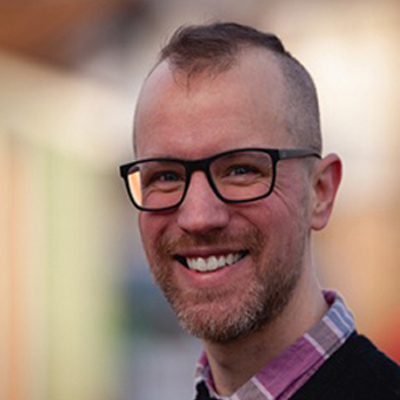
Michael Raleigh, Ph.D. (Assistant Professor, University of Minnesota Medical School, Minneapolis)
Dr. Raleigh received his Ph.D. from the University of Minnesota and is now a faculty member there in the Pharmacology Department. His main research interests center on developing biological treatments for substance use disorders.
What he’s studying: Dr. Raleigh and his team are developing opioid vaccines against heroin and oxycodone, as an approach to treating opioid use disorders. These vaccines work by eliciting opioid-specific antibodies that circulate in the blood after vaccination. The antibodies attach themselves to the drug, preventing it from entering the brain, and subsequently reducing its reinforcing effects.
Why HEAL? The NIH HEAL Initiative offered Raleigh and his colleagues the opportunity to test their oxycodone vaccine in people with oxycodone use disorder: the first step toward approval of a new drug. The team is also developing a vaccine targeting heroin.
Outside the lab: Raleigh enjoys the Minnesota outdoors with his wife, two young daughters, and their dog Blue.
Watch Raleigh’s talk (7 minutes)
View Projects on NIH RePORT and Watch Full Event Video
Read more about these early career investigator projects in NIH RePORT and watch the full presentation.
- Brandt, Individual Level Predictive Modeling of Opioid Use Disorder Treatment Outcome
- Freire, Intranasal Leptin as a Novel Treatment of Opioid-Induced Respiratory Depression
- Goldstein, Promoting Resilience in Children: Protocol Development for a Birth Cohort Study to Assess Factors Impacting Neurodevelopment
- Kang, Using Implementation Interventions and Peer Recovery Support to Improve Opioid Treatment Outcomes in Community Supervision
- Kleinman, Understanding How Peers Can Shift Stigma to Retain Low-Income, Minority Individuals in Opioid Treatment
- Mueller, The Icahn School of Medicine at Mount Sinai (ISMMS) EPPIC-Net Specialized Center
- Navia-Pelaez, AIBP and Regulation of Neuropathic Pain
Read the 2021 NIH HEAL Initiative Annual Report
Read more about NIH HEAL Initiative accomplishments and research progress.
Learn More About the Second Annual NIH HEAL Initiative Investigator Meeting
Watch more videos and view presentations from the meeting.
Stay Connected
Stay up to date on the latest HEAL Initiative research advances by subscribing to receive HEAL content directly to your inbox.
 U.S. Department of Health & Human Services
U.S. Department of Health & Human Services
